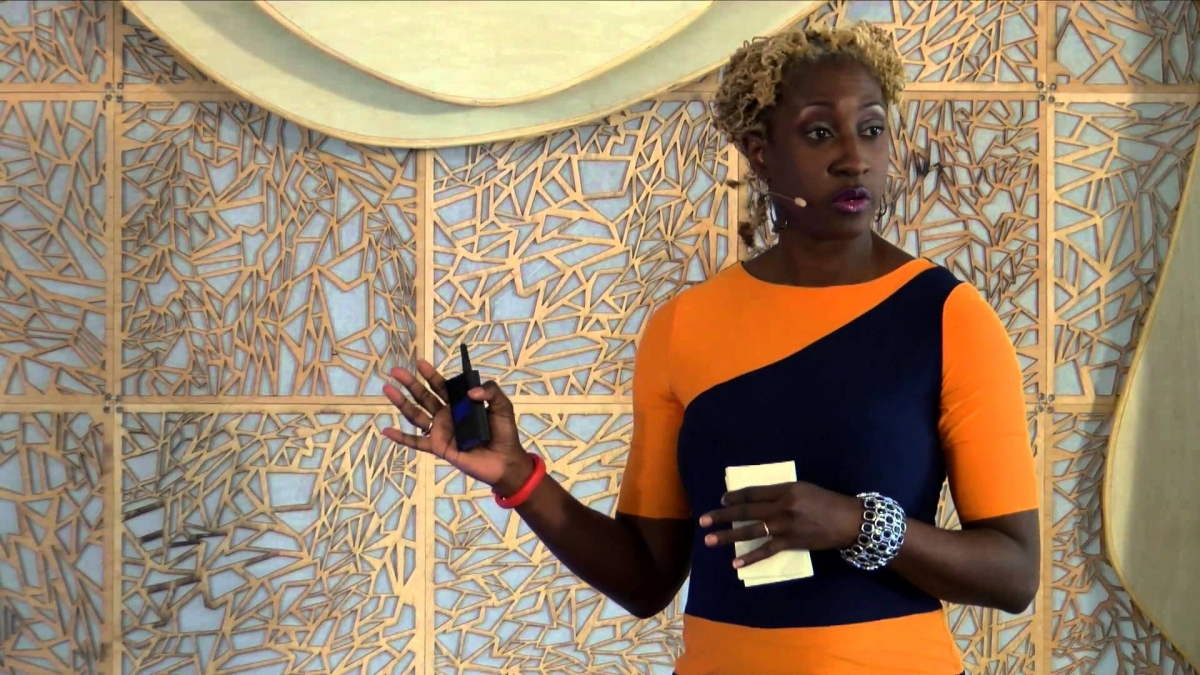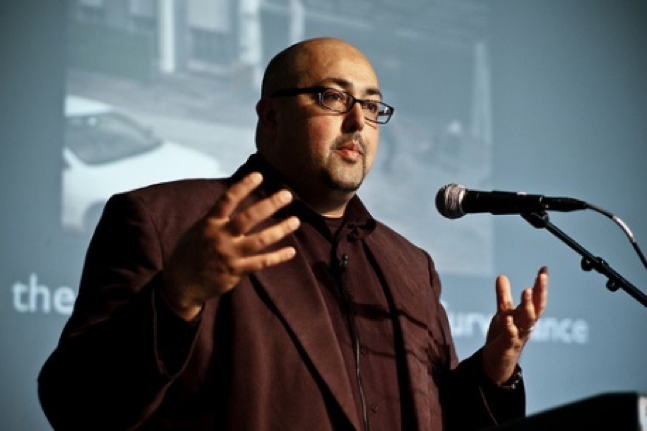The cornerstone of the New College Curriculum are the Engagements – a set of courses and experiences that will introduce first-year students to fundamental ways of thinking about knowledge. The College Fellows, who design and lead the Engagement experience, are some of the University’s best faculty who are dedicated to the undergraduate learning experience. Read below as we highlight only some of the College Fellows who will be teaching in the 2017-18 academic year, or click here for bios of all of this year’s College Fellows.
Kelsey Johnson
Associate Professor of Astronomy
I believe that learning is one of our most essential responsibilities. The breadth and depth of our collective knowledge and understanding impacts virtually every aspect of society and how we live and thrive within it. I am a fervent advocate of cross-disciplinary collaboration and education, which can stretch us beyond our comfort zones into rich and unexplored intellectual landscapes. My work in the classroom is heavily influenced by embracing and promoting students’ sense of curiosity and wonder, which I argue is at the core of fostering life-long learners. I am a champion for the importance of science literacy in modern society; our understanding of how science works and how to interpret scientific findings has consequences for issues ranging from the mundane to the profound. I have found that astronomy can serve as a powerful tool for rekindling a love of science in students who have pursued other disciplines, and I am a zealous science evangelist.
I have been in the Department of Astronomy at UVA since 2004. My own research spans galaxy evolution, with a focus on ancient star formation in the universe. I have served on numerous national and International committees that have to integrate the competing forces of scientific impact, financial resources, public understanding, and policy. I am also the founding director of the award-winning Dark Skies, Brights Kids outreach program. At the end of May 2017, I will begin serving as director of the College's Echols Scholars Program.
Lisa Woolfork
Associate Professor of English
 The College Fellows program appealed to me because I am committed to pedagogical notions that fuel successful humanities courses: rigor, spirited inquiry, and techniques that open up spaces for collaborative learning. I believe that the best teaching combines the inspiration of art, sometimes painstaking craft, and a dash of magic—those indiscernible elements of classroom interaction that elevate what could have been flat dialogue into experiences that reside in memory long after the class is concluded. I like to think that students find my classes memorable because I challenge them to engage the subject material in a variety of forms, because I value them and respect their contributions, and because I prioritize the learning enterprise that we’ve committed to embark upon together.
The College Fellows program appealed to me because I am committed to pedagogical notions that fuel successful humanities courses: rigor, spirited inquiry, and techniques that open up spaces for collaborative learning. I believe that the best teaching combines the inspiration of art, sometimes painstaking craft, and a dash of magic—those indiscernible elements of classroom interaction that elevate what could have been flat dialogue into experiences that reside in memory long after the class is concluded. I like to think that students find my classes memorable because I challenge them to engage the subject material in a variety of forms, because I value them and respect their contributions, and because I prioritize the learning enterprise that we’ve committed to embark upon together.
The Engagements provide an opportunity to extend my teaching of African American literature and culture beyond the scope of specific field and into the general terrain of understanding difference. For my courses, this will involve a macroscopic view of how racial difference was (and is) constructed in American life. I believe the best approach to this topic is an active one. Students entering one of my classes quickly realize that they will be responsible for much of their own learning; as a result, they learn to expand their academic capacity, to take risks, and extend their intellectual reach. I try to create a challenging, engaging and exciting environment in my classes using an array of tools to promote rigor. I seek an atmosphere in which everyone feels free to speak, but also a space in which students critically connect with the course materials rather than speaking solely from personal experience or anecdotes.
Siva Vaidhyanthan
Associate Professor of Media Studies
 I chose to teach an Engagements course because I am deeply committed to promoting the vast opportunities, resources, and conversations that exist only in America’s great public research universities. I reject the idea that small, liberal arts colleges provide better educational environments. I champion the idea that research university faculty must cross intellectual boundaries and invite students of all levels into their paths of discovery. My scholarly work on digital media informs everything I teach. I could not write about copyright, privacy, security, and how we discover information if I stayed in one area of study. I have to deploy tools and knowledge from history, economics, law, sociology, anthropology, literature, music, computer science, statistics, linguistics, and the visual arts.
I chose to teach an Engagements course because I am deeply committed to promoting the vast opportunities, resources, and conversations that exist only in America’s great public research universities. I reject the idea that small, liberal arts colleges provide better educational environments. I champion the idea that research university faculty must cross intellectual boundaries and invite students of all levels into their paths of discovery. My scholarly work on digital media informs everything I teach. I could not write about copyright, privacy, security, and how we discover information if I stayed in one area of study. I have to deploy tools and knowledge from history, economics, law, sociology, anthropology, literature, music, computer science, statistics, linguistics, and the visual arts.
I teach the same way, leading my students to deeper veins of knowledge within the disciplines. I find deep joy in learning from others, making connections across fields of ideas, and communicating clearly with broad audiences. If I succeed in the classroom, it’s because I show students that they can experience that joy as well.I have been teaching in the Department of Media Studies for 10 years. I also have taught at the UVA School of Law. I have written five books on internet culture or intellectual property and have edited one more. Every January, I lead a course called “New Media in NYC” that introduces students to the teeming world of Manhattan media industries. Before coming to UVA, I taught courses at Wesleyan University, New York University, the University of Amsterdam, and Columbia University.
